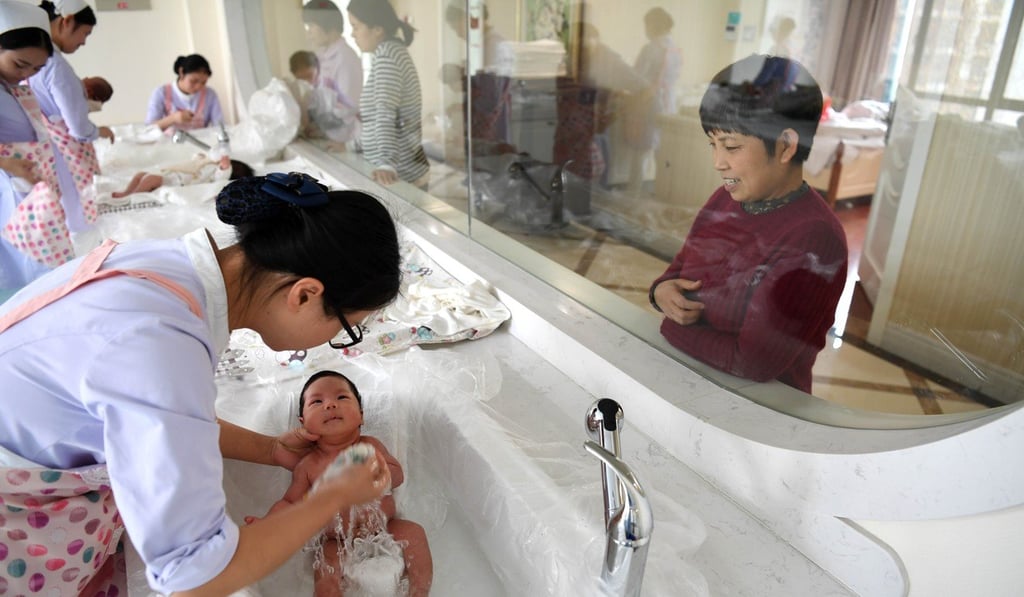China boosts childcare and maternal health services in bid to lift birth rate
- Beijing is encouraging people to have more children as it grapples with the challenges of a rapidly greying population
- China Family Planning Association will provide support including an online health check platform and childbirth advice centres

Beijing has gone from forced abortions and heavy fines during its notorious one-child policy to providing childcare services and encouraging people to have more children, as it grapples with a rapidly ageing population and falling birth rate.
In the latest move, the China Family Planning Association, which is overseen by the State Council, will “focus on maternity care and family health services” next year, according to a statement released after a meeting on Thursday.
That will include providing childcare and early development services for children under three, a new online platform for marriage and maternity health checks and a network of childbirth advice centres, Wang Peian, deputy director of the association, told Beijing news site Jiemian.

President Xi Jinping has been gradually relaxing China’s population controls since he came to power in 2012. The one-child policy, which was introduced in 1979 to control population growth, was relaxed in late 2013, with couples allowed to have a second child if either parent was an only child. Two years later, the one-child policy ended and all couples were allowed to have two children.
As the policy has shifted, local governments and organisations have started exploring ways to encourage people to have more children, including giving housing subsidies to families who have a second child, introducing more flexible working hours and longer maternity leave.